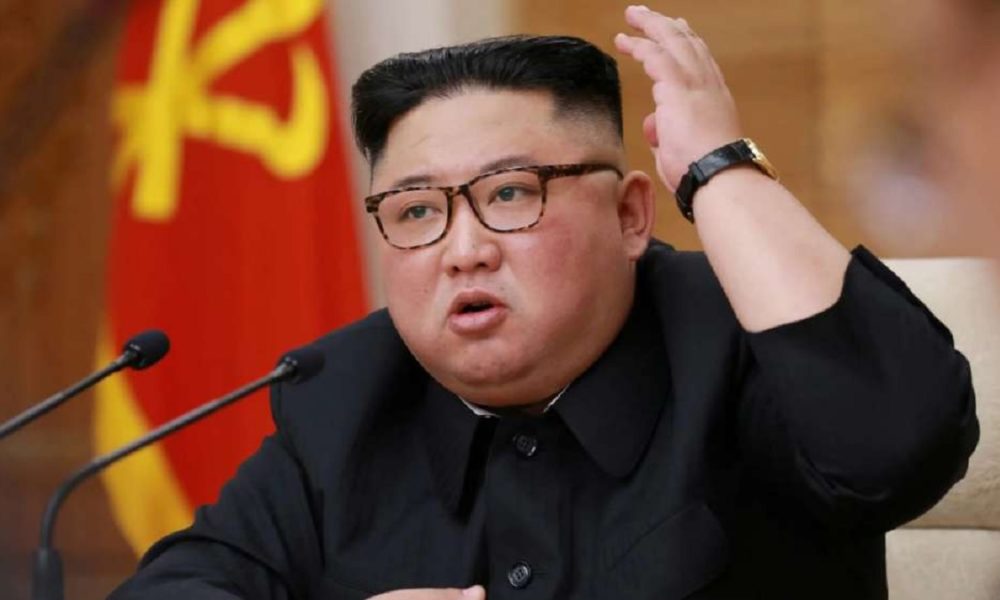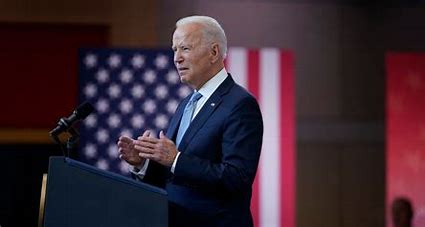A little over four years ago, the window for reversing the development of nuclear weapons and delivery capability by North Korea was closing. Careful monitoring by DPRK Supreme Commander Kim Jong-Un and (effectively the first deputy) Kim Yo-Jong (his sister) ensured that by mid-2017 Pyongyang had developed sufficient strike capability to ensure intolerable loss of life levels in Japan and among US service personnel stationed in the region. By the close of 2019, projectiles capable of reaching Alaska had been developed, although not tested except at the preliminary stage, and by now, it is calculated by those closely tracking developments in the DPRK that such vehicles for nuclear warheads would be able to reach California, with the aim of subsequent refinement being Texas. The 2003 attack on Saddam Hussein was launched by President George W Bush only after it was secretly confirmed that the dictator of Iraq had no WMD capable of wreaking havoc within military formations sent by the US and their coalition partners. Long and chaotic supply lines snaked about the conflict zone unmolested, evidence that there was no longer any WMD in Iraq. Of course, this did not prevent President Bush from pretending that there was—a theatrical performance for which he merited an Oscar. The 43rd President of the US fought the wrong type of war in the wrong country at the wrong time, weakening the position of the US substantially, although the blame for that was placed on the shoulders of the next two US Presidents, Barack Obama and Donald J. Trump. “Teflon Dubya” escaped blame for the dilution of US influence in the manner that Bill Clinton dodged the fact that it was his (Wall Street-crafted) measures that ensured the 2008 financial collapse that saw the billionaires and millionaires remain afloat while the middle and lower classes lost their shirts and many of them their houses. Both Clinton and Bush II were responsible for the ascendancy of the PRC and the rise of Al Qaeda and later ISIS, and both today remain honoured rather than reviled in their own country.
Just as it was impossible for many strategists in Washington to grasp the extent of the hold that Chairman Mao had over the minds of ordinary citizens of the PRC, it is proving difficult for them to fathom the depths of support that is enjoyed by Supreme Commander Kim Jong-Un by the people of the DPRK. Most appear convinced that the tribulations being faced by them are the consequence of the evil designs of countries out to enslave them, and that only Kim Jong-Un can lead them out of this predicament. There certainly are malcontents in North Korea, but these are small in number rather than the tidal waves of the disaffected imagined by the John Boltons and others who dream about pulling the trigger on regime change through street protests. In North America, in particular, there is a significant Korean diaspora that seeks a unified peninsula. A unified Korea would very soon equal, and possibly overtake, an ageing Japan in GDP, but the method that many in this diaspora are looking to is regime change in North Korea. Given the hold that decades of propaganda have had on the minds of the people in the DPRK, this seems highly unlikely. The reality is that the harsh sanctions regime, first put in place by President Clinton and tightened even further by his successors, has affected not the WMD program of that country but its people, rendering them victims to malnutrition, in much the way earlier Clinton sanctions (on Iraq) killed off hundreds of thousands of infants and children in the country during the period before the 2003 invasion of Iraq by Bush II even as Saddam Hussein and his cronies retained their luxurious lifestyles. Most of the sanctions imposed by members of NATO on weaker countries further impoverish the underprivileged, which is why they need to be replaced by fewer sanctions that would target only those responsible for designing and carrying out policies regarded by NATO member states as undesirable.
Information available to the few who have insight into what is taking place in the inner councils of the DPRK suggest that the military and security services of that state have accumulated substantial stocks of chemical, biological and nuclear WMD. Concurrently, despite sanctions there has been progression in the range and stability of the vehicles needed to carry such weapons to their destination in enemy countries. The DPRK leadership is aware that Beijing would profit from a rise in tensions between Pyongyang and Washington, just as it would from a significant increase in the number and intensity of Wahabi-Khomeinist extremist attacks, especially in Europe and the US. Either would draw attention away from the centrality of the PRC theatre as the fulcrum of the conflict that is now in full view between the US and the PRC for dominance in the global architecture. Apparently coincidentally, several technical experts from some of the DPRK’s neighbours have assisted in developing that country’s WMD capabilities, much as retired and on-leave personnel of the Pakistan military have spent substantial periods of time training elements that prepare for the establishment of a Caliphate across much of Eurasia in the way planned by Abubakr al Baghdadi.
Given ground realities, the policy sought by President Moon of South Korea appears to be logical. This is to try and ensure that North Korea is given pathways to feed its people and provide them employment in a manner that is not clandestine or criminal. There is an obvious inconsistency between the syrupy protestations of love by President Trump to Supreme Commander Kim and the harsh sanctions imposed by the same Trump administration on the DPRK. This may meet with howls of protest from devotees of Trump, but the best path for President Biden to follow for North Korea is to go along with President Moon Jae-In as the latter seeks to develop a friendly relationship with his North Korea counterpart. Both President Biden as well as Prime Minister Suga of Japan need to show that they trust and respect President Moon, if the latter is to be taken seriously in Pyongyang. War breaking out on the Korean peninsula would be a disaster, and given the situation in the DPRK, only the “Bright Sunshine” policy, first enunciated by a professor of geopolitics from India nearly five years ago, can succeed in bringing down tensions within the Korean peninsula. The Koreans are a people with a great civilisation and culture and need to be given the opportunity for conciliation and cooperation designed to promote economic development. Kim Jong-Un seeks to do a Deng Xiaoping in North Korea, and should he succeed, his warheads will be sheathed in a manner that no other method short of a disastrous war can ensure. The greater the tensions between Pyongyang and Washington (not to mention Tokyo), the broader will be the smiles in Beijing, although public statements would not reflect this satisfaction at another diversion from a focus on the PRC by those countries looking to ensure a free and open Indo-Pacific.
First Deputy Kim Yo-Jong reflects the mind of Supreme Commander Kim Jong-Un, and what she has said is less a warning of war as it is a note of caution. Her caution is intended (in the view of those familiar with the leadership in the DPRK) so that the White House does not create tensions through a miscalculation of Kim’s intent and capabilities. The North Korean leadership has the capability to respond in kind and will use it. This is the message, but this is only if other options fail or not get tried out. Thus far, since Jill and Joe Biden took up residence in the White House, US interlocutors attempting to engage with the leadership in Pyongyang have been of a relatively low level. Issues involving the DPRK cannot be sorted out at the level of junior officials with no plenipotentiary powers. What is needed is higher-level US-DPRK engagement on the condition that disruptive moves such as nuclear tests or long-range missile launches are avoided by the North Korean side. Such talks could take place in locations that have long maintained friendly relations with both Washington as well as Pyongyang, such as India. The first deputy has conveyed a message to Secretary of State Anthony Blinken and through him to his bosses, Joe Biden and Kamala Harris. Those tracking the situation in Pyongyang say that the message is not hostile but the reverse. It is a call to diplomacy, but at a level and in a manner that actually makes a difference rather than probes by relatively junior officials performing the job of newspaper correspondents in securing information rather than seeking mutually acceptable solutions to the issue of peace in the Korean peninsula. The people of Korea or those who have Korean heritage deserve to be given the chance for peace and conciliation.























